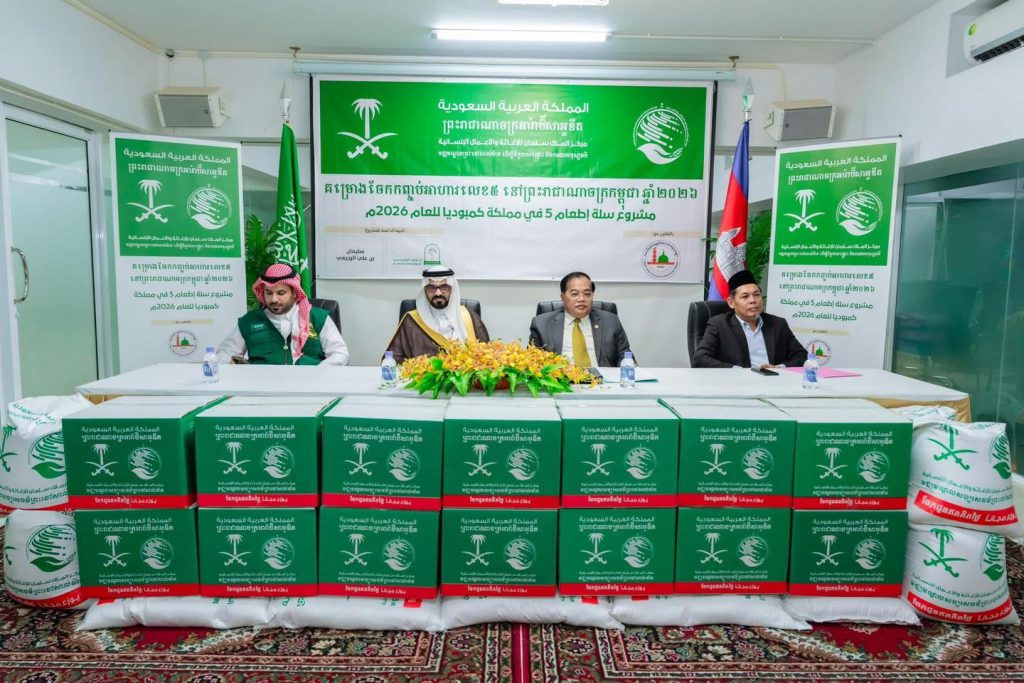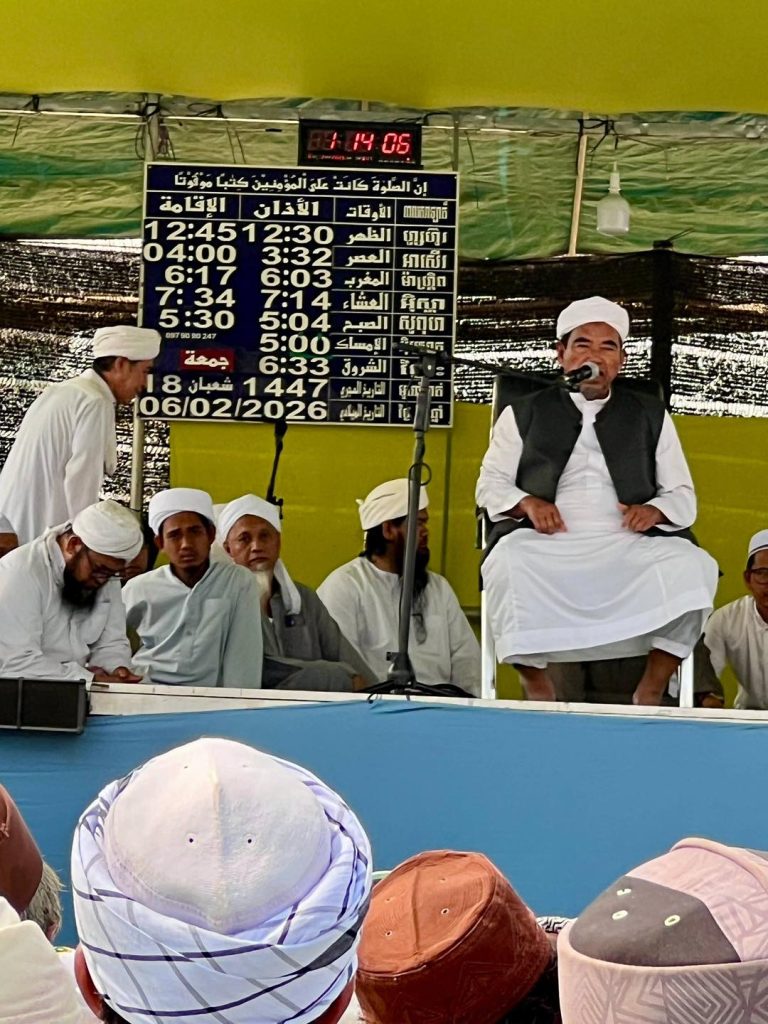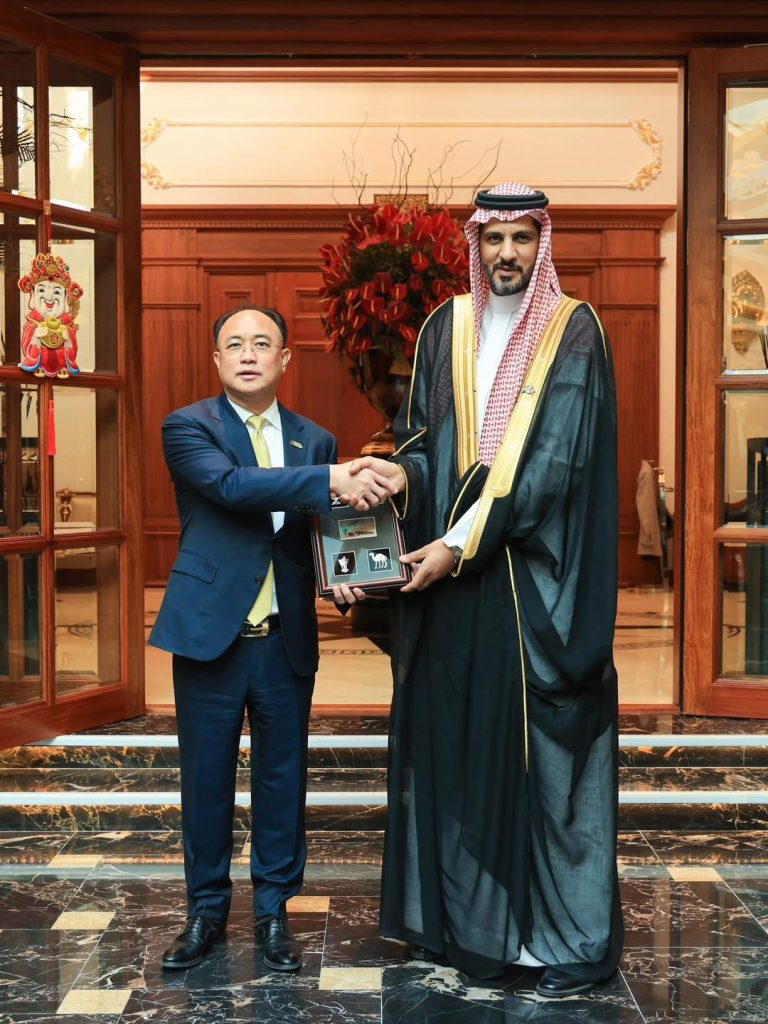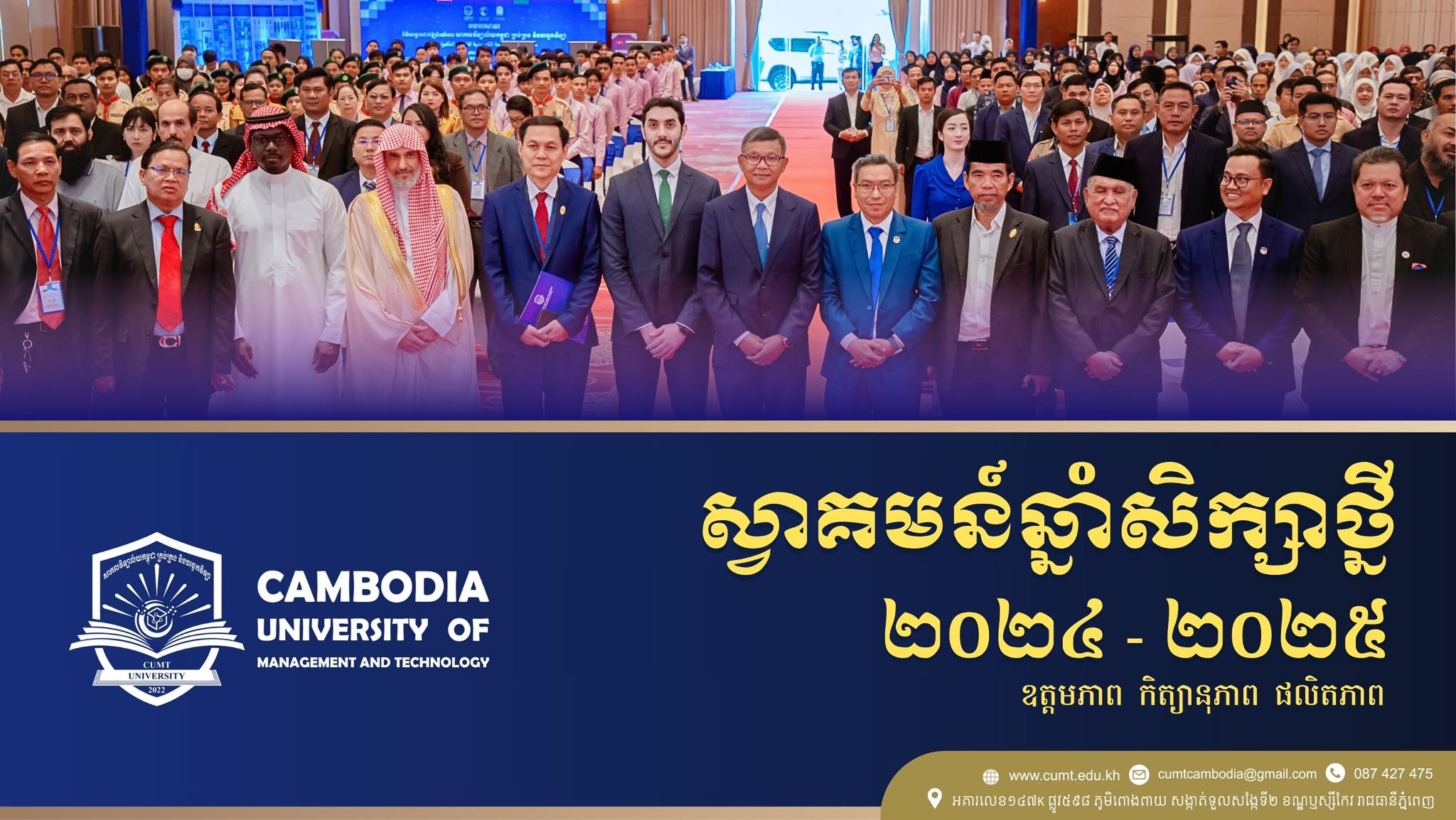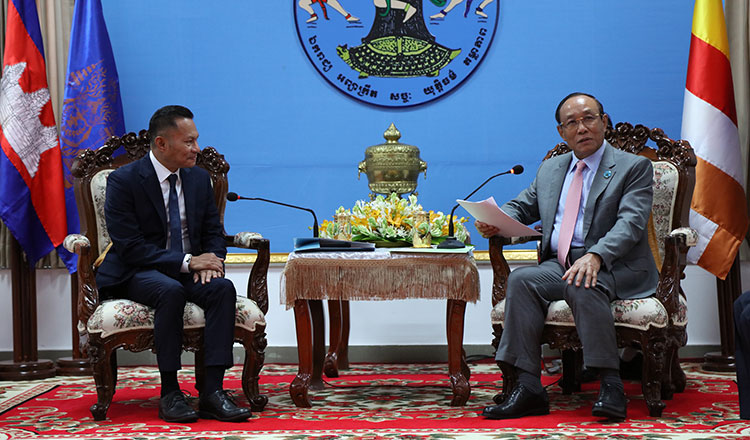
NEC, Malaysian Ambassador discuss electoral systems


He explained that both bodies play critical roles in the legislative process as outlined in the Constitution and Cambodian law, with most laws proposed by the government and some by individual members of parliament. Once the NA passes a bill, it is reviewed by the Senate, and then forwarded to the Constitutional Council, and ultimately submitted to the King for assent.
Further detailing Cambodia’s electoral setup, Chan discussed the distribution of polling stations and seats, noting that high-population centres, such as Phnom Penh, have up to 12 seats, while smaller districts have only one. Cambodia’s NA currently consists of 125 seats, with elections held proportionally by capital and province.
Chan also outlined Cambodia’s electoral history, mentioning that the country has held seven NA elections and five Senate elections. He explained that the Senate has 61 members, with two appointed by the King, two by the NA, and the remaining 58 elected through indirect elections.
Ambassador Shaharuddin expressed gratitude to the NEC Chairman for the comprehensive overview, noting that Malaysia’s legislative structure shares similarities with Cambodia’s, with both a Senate and a House of Representatives.
Malaysia’s House of Representatives has 222 seats, while its 70-member Senate is appointed rather than elected. He also highlighted Malaysia’s annual youth parliament initiative and suggested potential collaboration on youth engagement and study visits to share experiences related to electoral processes.
In response, Chan welcomed the idea of collaboration and assured the Malaysian delegation that the NEC would facilitate information sharing and extend invitations to related meetings.
Like Cambodia, Malaysia practices parliamentary democracy with constitutional monarchy and a multiparty election system.
While speaking last week with Khuon Sudary, President of the NA, on the sidelines of the 45th General Assembly of the ASEAN Inter-Parliamentary Assembly (AIPA-45) in Laos, Tan Sri Dato Johari Abdul, Speaker of the House of Representatives of Malaysia, called on young Malaysian MPs to come and learn about the election process in Cambodia because the election process last year, which he came to observe, went on smoothly, peacefully, lawfully, and with no violence.
During a Cross-Talk interview with Khmer Times while observing the general election in Cambodia last year, Johari said he was full of praise for the way the election was conducted and noted several unique procedures that could be adopted by his country.
Among these were the ban on alcohol sales on the eve and day of polling.
“On these days, there is no campaigning or drinking alcohol, meaning that mentally, everybody should be prepared to go out and vote with a clear mind by not being influenced by alcohol or anything else,” Johari said. “This is something that I don’t think many countries have done,” he added.
Another election procedure that he was impressed with is the way the Cambodian government has enshrined an exact time for the election: every five years, on a certain date, on a certain Sunday.


